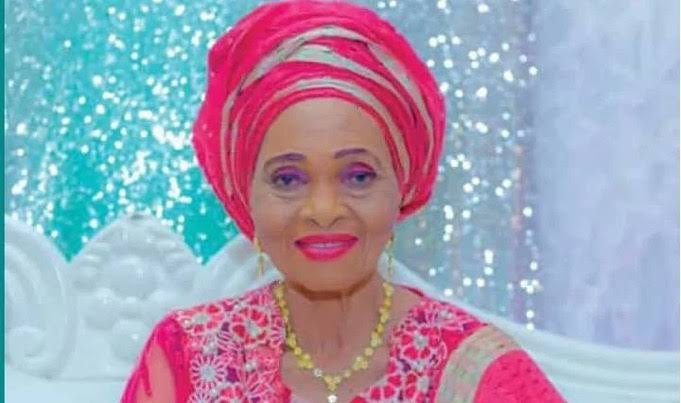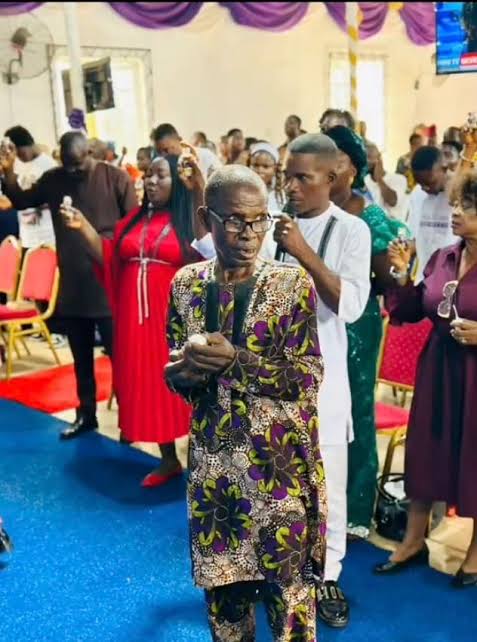On May 16, 2025, the city of Ibadan in Oyo State, Nigeria, bore witness to a solemn yet profoundly significant event—the burial of Chief Anike Agbaje-Williams, a trailblazer whose name is etched in the annals of African broadcasting history. Recognized as Africa’s first female television broadcaster, Agbaje-Williams passed away peacefully on February 26, 2025, at the age of 88 in the city she called home for much of her life. Her funeral was not only a moment of mourning but also a celebration of an extraordinary life that broke barriers and inspired generations. This blog post delves into the remarkable journey of Chief Anike Agbaje-Williams, her contributions to the media landscape, and the legacy she leaves behind.
A Historic Moment in African Broadcasting
Chief Anike Agbaje-Williams made history on October 31, 1959, when her face appeared on the screen during the test transmission and official launch of Western Nigerian Television (WNTV), now known as the Nigerian Television Authority (NTA). This moment marked her as the first woman to grace television screens across Africa, earning her the title of the “First Lady of TV in Africa.” But her contributions to broadcasting extended beyond television. She was also the first voice heard on the Western Nigerian Broadcasting Service (WNBS), Africa’s first commercial radio station. This dual achievement led to her affectionate nickname, “Double-First,” a testament to her pioneering spirit in both radio and television.
Born in 1936, Agbaje-Williams grew up in an era when opportunities for women, particularly in technical and public-facing roles, were limited. Yet, her determination, talent, and passion for communication propelled her into a field that was then dominated by men. Her debut on WNTV was not just a personal milestone but a cultural and historical landmark for Nigeria and the African continent. The launch of WNTV, spearheaded by the visionary Chief Obafemi Awolowo, then Premier of Western Nigeria, was a bold step toward modernizing media and education in the region. Agbaje-Williams, with her poise and professionalism, became the face of this transformative moment.
A Career That Shaped Generations
Agbaje-Williams’ career at WNTV and WNBS was marked by excellence and innovation. As a broadcaster, she brought news, entertainment, and education to millions of households, helping to shape public discourse in post-colonial Nigeria. Her voice and presence were synonymous with reliability and authenticity, qualities that endeared her to audiences across the Western Region and beyond. She worked alongside other media pioneers, contributing to the growth of Nigeria’s broadcasting industry during its formative years.
Her role extended beyond presenting. Agbaje-Williams was a storyteller, a cultural ambassador, and a role model for women aspiring to break into the media industry. At a time when societal norms often confined women to domestic roles, she stood as a beacon of possibility, demonstrating that women could excel in high-profile, technical, and creative fields. Her work laid the groundwork for future generations of female broadcasters, from Nigeria’s Moji Makanjuola to global icons like Oprah Winfrey.
A Life Rooted in Ibadan
Chief Anike Agbaje-Williams spent much of her life in Ibadan, a city renowned for its rich cultural heritage and intellectual vibrancy. It was fitting, therefore, that her final farewell took place in this historic city. Her passing on February 26, 2025, was met with an outpouring of tributes from across Nigeria and the African diaspora. The family, through a statement issued by Banji Sokoya, initially requested privacy as they mourned their matriarch. However, they later announced funeral arrangements, culminating in the burial ceremony on May 16, 2025.
The funeral was attended by a host of dignitaries, including prominent figures such as Babalakin, who paid glowing tributes to Agbaje-Williams’ contributions to broadcasting. The event was a blend of solemnity and celebration, reflecting the duality of loss and legacy. For many in attendance, it was an opportunity to honor a woman whose work had touched lives directly and indirectly through the airwaves.
Tributes from Across the Globe
The news of Agbaje-Williams’ passing and burial reverberated far beyond Ibadan. Posts on X captured the sentiments of Nigerians and Africans who recognized her as a trailblazer. Media outlets such as The Nation and Africa Independent Television (AIT) published detailed accounts of her life and achievements, underscoring her role as a pioneer. Social media platforms buzzed with hashtags and messages celebrating her as the “First Lady of TV in Africa.” One X post poignantly noted, “Chief Anike Agbaje-Williams opened the door for countless women in media. Her voice and face will forever be part of Africa’s story.”
These tributes highlighted not only her professional accomplishments but also her personal qualities. Agbaje-Williams was described as gracious, dedicated, and deeply committed to her craft. Her ability to connect with audiences, whether through radio or television, was rooted in her authenticity and passion for storytelling. For many young journalists and broadcasters, her life serves as a reminder of the power of perseverance and the importance of representation in media.
The Legacy of the “Double-First”
Chief Anike Agbaje-Williams’ legacy is multifaceted. First, she represents a milestone in the history of African media. Her appearance on WNTV in 1959 was a defining moment that signaled Africa’s entry into the global television era. Second, she is a symbol of gender equality, having shattered glass ceilings in a male-dominated industry. Her success paved the way for women to take on prominent roles in broadcasting, journalism, and media production.
Third, her life underscores the importance of regional innovation. The establishment of WNTV and WNBS by the Western Nigerian government was a bold move that positioned Nigeria as a leader in African media. Agbaje-Williams was at the heart of this revolution, embodying the spirit of progress and possibility. Her work helped to democratize information, making news and entertainment accessible to ordinary Nigerians.
Finally, her legacy is personal. For her family, friends, and those who knew her, Agbaje-Williams was a beloved figure whose warmth and wisdom left an indelible mark. Her story is a reminder that behind every historical figure is a human being with dreams, challenges, and triumphs.
A Call to Remember and Inspire
As we reflect on the life and legacy of Chief Anike Agbaje-Williams, we are reminded of the power of firsts. Being the first is never easy—it requires courage, resilience, and a willingness to forge a path where none exists. Agbaje-Williams did just that, and her contributions continue to resonate in the media industry and beyond.
For aspiring journalists, broadcasters, and storytellers, her life is a call to action. It challenges us to push boundaries, embrace innovation, and use our platforms to uplift and inform. For policymakers and media organizations, her story highlights the importance of investing in local talent and creating opportunities for underrepresented groups.
As Ibadan bids farewell to one of its most illustrious daughters, the echoes of Chief Anike Agbaje-Williams’ voice and the image of her face on that historic television screen remain. She was more than a broadcaster; she was a pioneer, a visionary, and a symbol of what is possible when talent meets opportunity. May her soul rest in peace, and may her legacy continue to inspire generations to come.
Join our Whatsapp channel to stay updated always!


